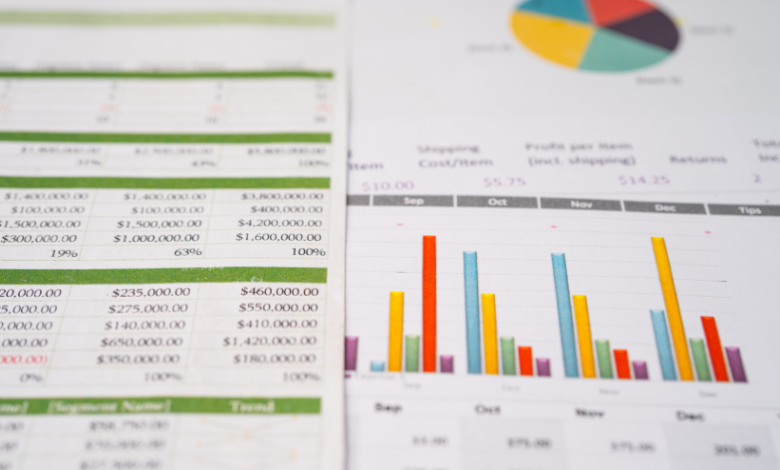Exd excel paper 2 for accounting

Excelling in accounting exams, particularly the Excel Paper 2, isn’t just about the numbers. It’s about understanding the depth and breadth of accounting principles and being able to apply them with precision. This comprehensive guide is designed to help you not only prepare effectively but to sit the Excel Paper 2 with confidence and clarity. From understanding the key concepts to providing you with practical tips on how to tackle your exam, this guide is your go-to resource for acing your accounting studies.
The Foundations of Accounting
Before we jump into the intricacies of Excel Paper 2, it’s crucial to ensure that your foundation in accounting is solid. This section dives into the fundamental principles every aspiring accountant must master.
Mastering the Double-Entry Bookkeeping System
The double-entry bookkeeping system is the bedrock of modern accounting. It’s a method that records each financial transaction in two accounts with an equal and opposite entry. Understanding this system is crucial for accuracy in accounting, and this section will refresh your knowledge.
Principles vs. Rules: Understanding the Difference
Accounting is governed by two key elements: principles and rules. Principles are the generally accepted ways of recording and reporting financial data, while rules are the specific guidelines that dictate how to apply those principles. We’ll demystify these for you.
The Importance of Accrual Accounting
Accrual accounting is vital for businesses to understand their financial position at any given time. Unlike cash-basis accounting, which only records transactions once money changes hands, accrual accounting records the transaction at the time it occurs, irrespective of when the money is actually received or paid. Learn why this concept is critical for the modern accountant.
Excel Skills for Accountants
The Excel portion of your exam can be intimidating, but with the right skills, it can become your best ally. This section covers the essential Excel functions and formulas to master.
Essential Excel Formulas Every Accountant Must Know
From simple SUM and AVERAGE functions to more complex LOOKUP and IF statements, Excel is a treasure trove of functions that can simplify complex accounting tasks. We’ll walk you through the fundamental formulas you need to commit to memory before exam day.
Organizing Financial Data with Pivot Tables
Pivot tables are powerful tools in Excel that can help you analyze and summarize large data sets. This section will teach you how to use pivot tables to break down complex financial data and transform it into clear, actionable insights.
Conditional Formatting for Visual Data Interpretation
Understanding the story your data is telling is just as important as the data itself. Conditional formatting allows you to highlight trends, identify outliers, and analyze data more effectively. We’ll demonstrate how to use conditional formatting to enhance your financial reports and analyses.
Preparation Strategies for Excel Paper 2
Effective preparation is key to success in any exam. This section provides strategies to streamline your revision process and maximize your retention of critical concepts.
Creating a Study Plan Tailored to Your Needs
One size does not fit all when it comes to study plans. We’ll guide you through the process of creating a personalized study plan that takes into account your strengths, weaknesses, and learning style, helping you make the most of your study time.
Practicing with Realistic Mock Exams
There’s no better way to prepare for an exam than by simulating the conditions of the actual test. We’ll provide you with access to realistic mock exams that will not only test your knowledge but also help you get accustomed to the format and time constraints of the Excel Paper 2.
Sourcing Additional Study Materials and Resources
In the vast world of accounting, there’s an abundance of resources at your disposal. We’ll guide you through sifting out the most valuable materials, from textbooks to online courses, that can supplement your understanding and bolster your preparation.
Setting Up for Success on Exam Day
The final leg of your preparation is to know how to approach the day of the exam itself. This section provides strategies for maintaining composure and maximizing your performance on the big day.
The Art of Time Management in Your Exam
Accounting exams are often time-pressured, and Excel Paper 2 is no exception. We’ll show you strategies for managing your time effectively during the exam, including how to prioritize questions and avoid getting stuck on a single problem.
Tackling Case Studies and Essay Questions
Excel Paper 2 may include case studies and essay questions that require a more detailed response. We’ll demonstrate how to structure your answers, providing evidence of sound accounting practice and logical reasoning, to ensure you’re articulating your knowledge effectively.
Post-Exam Analysis and Reflection
After the exam, it’s important to take stock of how you handled the questions and what you can learn from the experience. We’ll guide you through a post-exam analysis to identify areas of improvement and celebrate the sections where you excelled, setting you up for success in your future accounting endeavors.
Conclusion
Excelling in accounting, particularly in an exam such as Excel Paper 2, is a multifaceted challenge that requires both technical expertise and strategic preparation. By following the guidance in this thorough preparation guide, you’re well on your way to becoming an adept and confident accountant. Remember, success is not just about the destination—it’s about the journey, the effort, and the persistence. Good luck with your studies, and may your Excel Paper 2 be a testament to your hard work and dedication.




